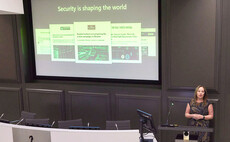Development environments are shifting from 'C family' languages to functional tools in response to cloud and mobile
Computer giants such as Apple and Microsoft are leading a shift in programming language architecture that may soon see established development languages, such as C, C++, C# and Java, pushed aside i...
To continue reading this article...
Join Computing
- Unlimited access to real-time news, analysis and opinion from the technology industry
- Receive important and breaking news in our daily newsletter
- Be the first to hear about our events and awards programmes
- Join live member only interviews with IT leaders at the ‘IT Lounge’; your chance to ask your burning tech questions and have them answered
- Access to the Computing Delta hub providing market intelligence and research
- Receive our members-only newsletter with exclusive opinion pieces from senior IT Leaders






















